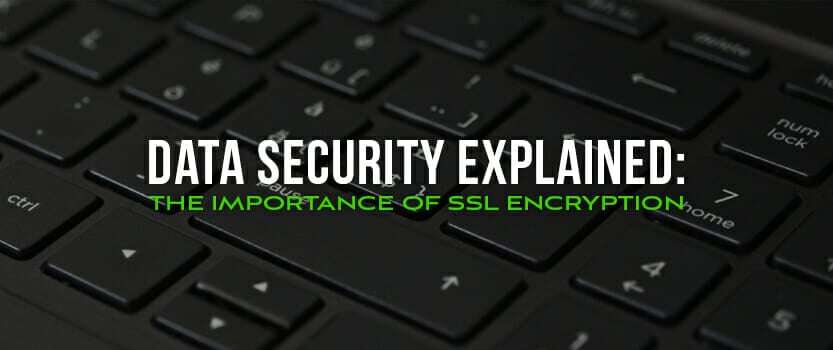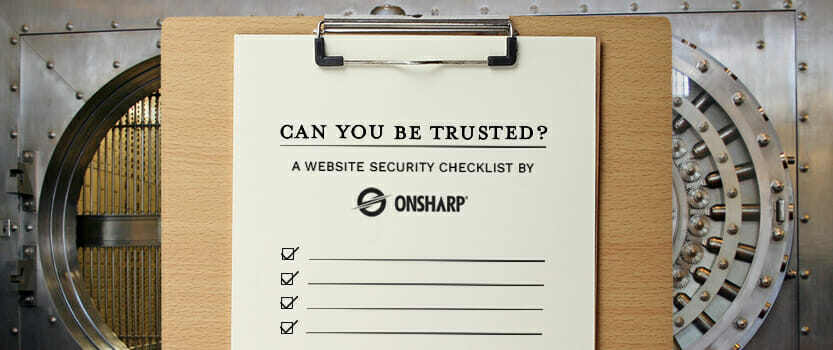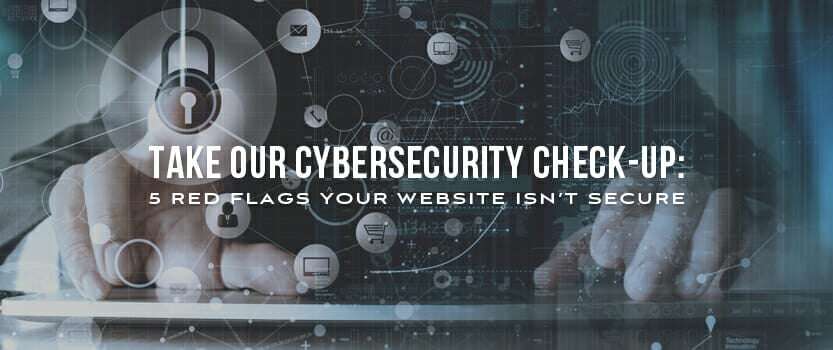2 min read
Data Security Explained: The Importance of SSL Encryption
Everything on the web should be secure—and that means your website should be, too. Since setting up SSL encryption on a site is a...
Improve customer satisfaction and increase operational efficiency with a client portal.
Take control of your operations with customized software solutions.
Help your in-house dev team get more done, faster with our Midwest-based experts.
It’s often obvious when your website has been hacked. For example, your homepage may have been replaced with spam or weird code snippets. Or, you may have received notifications that you’ve been hacked from your browser, Google Search Console, hosting provider and/or malware scanner.
Either way, when you know something is wrong, you can start to take action. But sometimes it’s not easy to know whether your site is secure. Today we’ll look at five red flags that your site may be vulnerable to cyberattacks.
You must have an SSL certificate, period. You can check by looking at your URL. The first part should read https:// and show a padlock symbol. This means your SSL certificate is updated and keeping your site secure.
Trust seals – for example, from McAfee, PayPal or BBB – give your site a layer of security that’s important for both your customers and your business. These seals ensure that key aspects of your site, such as payment, are secure. They also keep cyber-predators away. By knowing your site has extra security, you’re less likely to become a target.
If your site is super slow to load, or even times out, your site may be in the progress of being hacked. This is a red flag that something unusual is going on with your site performance. Another related sign is seeing an uptick in web traffic, which could affect site speed and mean that somebody is trying to overwhelm your site.
Keeping your software up to date is a golden rule of security. If you haven’t updated your software, plugins or apps, do it now. It’s a bother, but it can make a huge difference. 73.2% of the most popular WordPress installations are vulnerable, especially if not up to date.
It’s 2020, people. Please get a password management tool. It’ll protect your site from this common hacker method and give you peace of mind.
In addition to securing your site, you might also want to think about getting cyber insurance. With it, you’ll be protected in case a hacker is able to slip behind your defenses. For total peace of mind, sign up for our website essentials package where we provide everything you need to ensure the safety, security, and speed of your website.

2 min read
Everything on the web should be secure—and that means your website should be, too. Since setting up SSL encryption on a site is a...

4 min read
It’s hard to know all of the prevention methods to be aware of when it comes to your website’s security. Unfortunately, there are a multitude...

1 min read
At #TeamOnsharp, we’re always looking for ways different industries can keep their websites secure. Right now, we’re focusing on the ...
